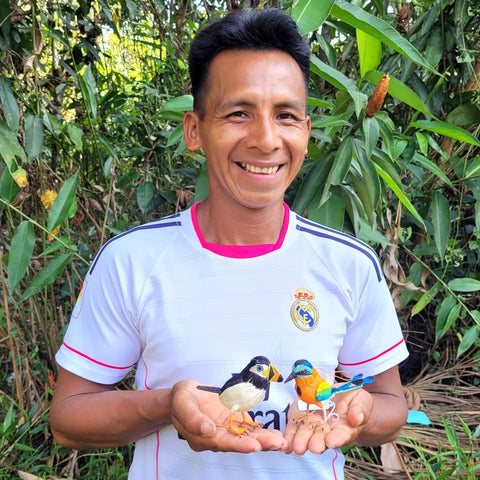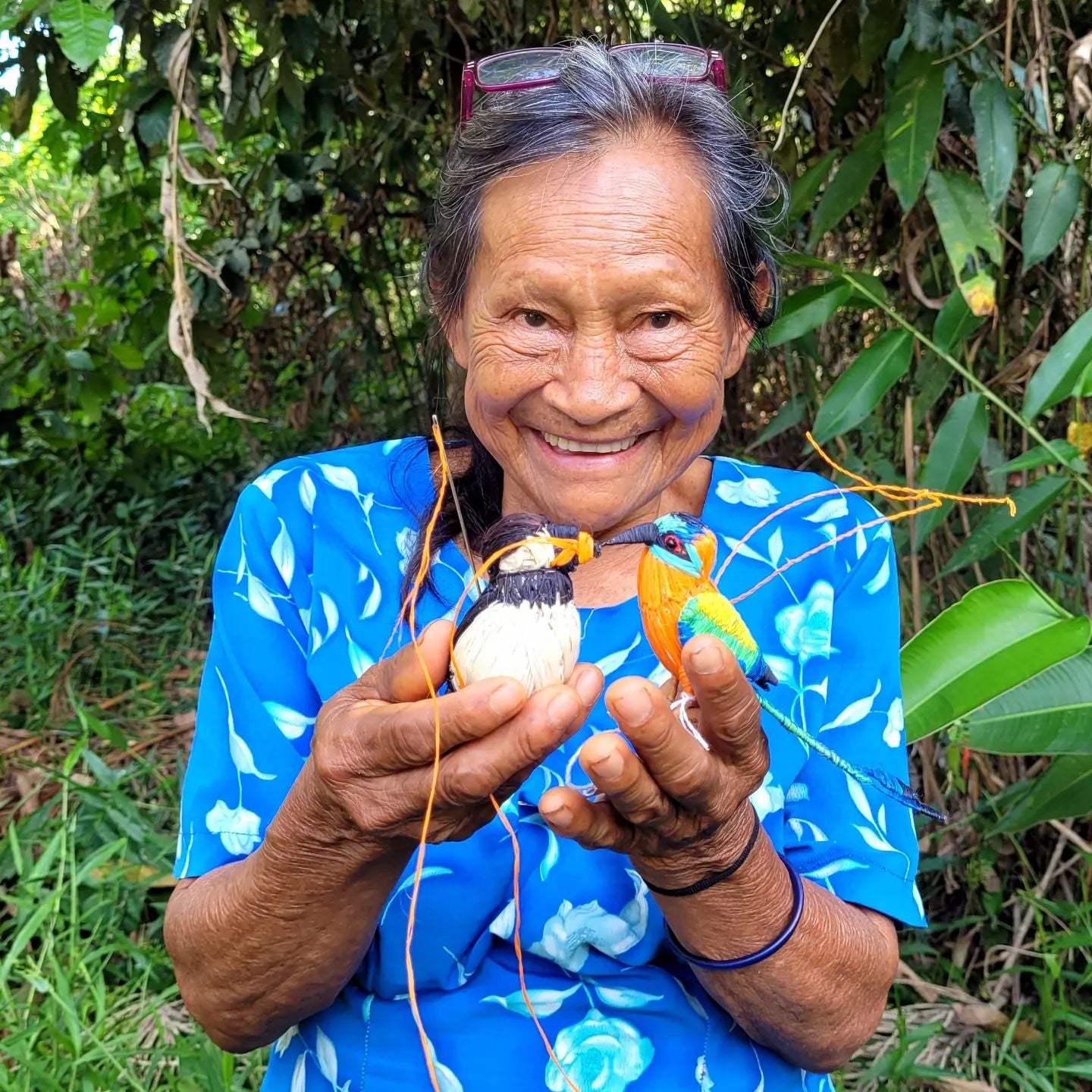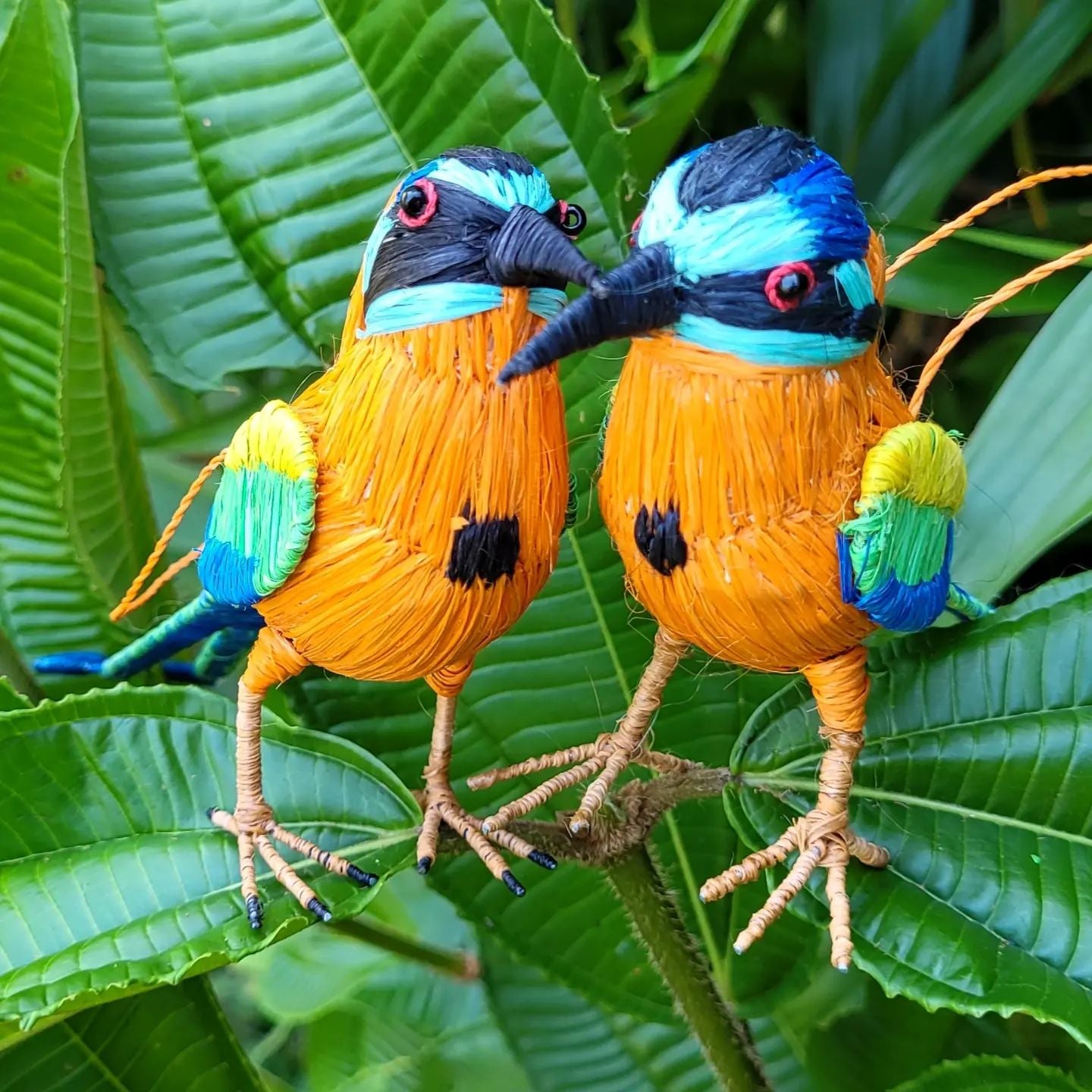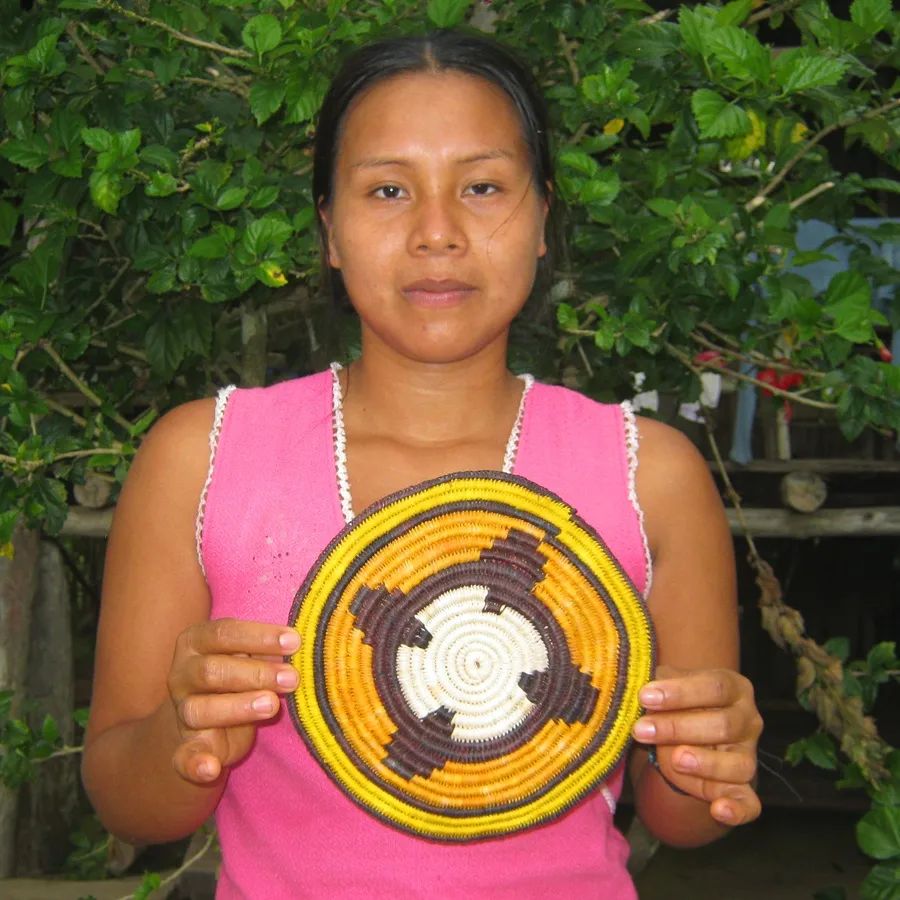by Campbell Plowden
October 8, 2022
Pablo did a great job working with each artisan in the workshop to make one blue-crowned mot mot. We bought the ones completed by the experienced artisans by noon on the third day. Two other artisans did well making their first woven bird. The other artisan had a great warm smile, but her weak elder eyes made it impossible for her to weave the small details needed to reach our export quality.

When we resumed the workshop on Wednesday afternoon, we shifted our mode to try a modified assembly line to make woven puffins – a popular seabird from the North Atlantic. Each artisan took on a task to make seven copies of a bird part. The two most experienced artisans made identical size and shape bodies and heads. Pablo made cardboard templates of the wings, tail, and beak so three artisans could cut and shape these parts. The oldest artisan cut the wires to make the legs and feet.

Once these parts were ready, the heads were attached to the bodies and given to individual artisans to complete their bird by adding details on the feet, eyes, and beak. This process produced seven birds with the same size and shape much faster than having individual artisans go through each step on their own. While the quality of the final touches still depended a lot on the skill of the artisan, it allowed for beginning artisans to participate in making these ornaments at a higher level than normal.

Pablo and the others were excited about introducing this process to their groups and recognized it would require good coordination and cooperation to succeed.
At the end of the workshop we gave each group an order to make 3 to 20 woven mot mots and puffins according to their number and skill. Our goal of course is to develop as many artisans as possible who can fulfill orders in a timely manner with top-level quality.

While this workshop ended up being a hybrid basic workshop, we decided to invite six artisans from the Ampiyacu to attend the next artisan facilitator training in the Maranon next week. Step by step for the puffins, and step by step for artisan training.





